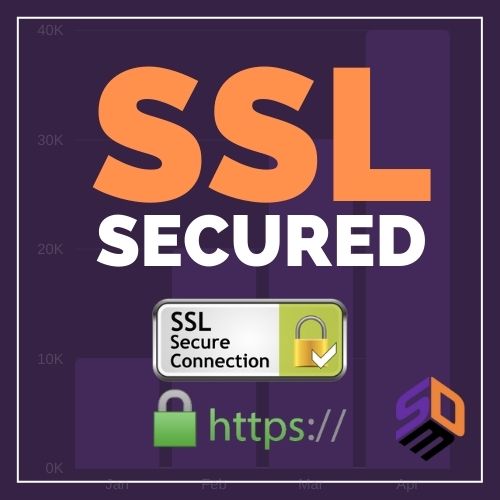SSL Certificate Installation
$30.00
In addition to securing user data in transit, HTTPS makes sites more trustworthy from a user’s perspective. Many users won’t notice the difference between an HTTP:// and an HTTPS:// web address, but most browsers have started tagging HTTP sites as “not secure” in more noticeable ways, attempting to provide an incentive for switching to HTTPS and increasing security.
Description
What is an SSL certificate?
An SSL certificate displays important information for verifying the owner of a website and encrypting web traffic with SSL/TLS, including the public key, the issuer of the certificate, and the associated subdomains.
The process works like this:
- A browser or server attempts to connect to a website (i.e., a web server) secured with SSL.
- The browser or server requests that the web server identifies itself.
- The web server sends the browser or server a copy of its SSL certificate in the response.
- The browser or server checks to see whether it trusts the SSL certificate. If it does, it signals this to the webserver.
- The web server then returns a digitally signed acknowledgment to start an SSL encrypted session.
- Encrypted data is shared between the browser or server and the webserver.
What information does an SSL certificate contain?
SSL certificates include:
- The domain name that the certificate was issued for
- Which person, organization, or device it was issued to
- Which certificate authority issued it
- The certificate authority’s digital signature
- Associated subdomains
- Issue date of the certificate
- The expiration date of the certificate
- The public key (the private key is kept a secret)
Why do websites need an SSL certificate?
A website needs an SSL certificate in order to keep user data secure, verify ownership of the website, prevent attackers from creating a fake version of the site, and gain user trust.
Encryption: SSL/TLS encryption is possible because of the public-private key pairing that SSL certificates facilitate. Clients (such as web browsers) get the public key necessary to open a TLS connection from a server’s SSL certificate.
Authentication: SSL certificates verify that a client is talking to the correct server that actually owns the domain. This helps prevent domain spoofing and other kinds of attacks.
HTTPS: Most crucially for businesses, an SSL certificate is necessary for an HTTPS web address. HTTPS is the secure form of HTTP, and HTTPS websites are websites that have their traffic encrypted by SSL/TLS.
In addition to securing user data in transit, HTTPS makes sites more trustworthy from a user’s perspective. Many users won’t notice the difference between an HTTP:// and an HTTPS:// web address, but most browsers have started tagging HTTP sites as “not secure” in more noticeable ways, attempting to provide an incentive for switching to HTTPS and increasing security.

You may also like…
-

-

-
Sale!

20 Articles – Optimized Content Writing(Total 20,000 words)
Original price was: $549.00.$499.00Current price is: $499.00. -







Reviews
There are no reviews yet.